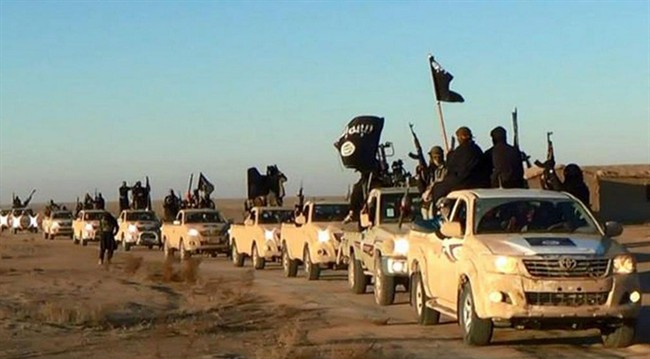The number of people killed by terrorism surged to 32,658 in 2014, the largest increase ever recorded, according to a report released on Tuesday by the Institute for Economics and Peace (IEP).

The IEP’s Global Terrorism Index showed the 80 per cent rise was largely at the hand of Nigeria’s Boko Haram – now the world’s deadliest terrorist group – and the Islamic State (ISIS) group. The number is up sharply from 2013 where 18,111 people were killed by terrorism.
Full coverage: The terrorist attacks in Paris
While the world is still in shock from the Paris attacks last Friday, which killed at least 129 people, the index showed that 78 per cent of last year’s terrorist killings were concentrated in just five countries: Iraq, Nigeria, Afghanistan, Pakistan and Syria.
Iraq continues to be the country most impacted by terrorism, with 3,370 attacks killing 9,929 people, the highest number of terrorism incidents and fatalities ever recorded by a single country. Nigeria recorded the largest increase in deaths from terrorism, rising by over 300 per cent to 7,512.
Steve Killelea, executive chairman of IEP, said in a statement that terrorism spread significantly over the past year as the number of countries that suffered more than 500 deaths increased from five in 2013 to 11 in 2014.
“What is most striking from our analysis is how the drivers of terrorism differ between more and less developed countries,” Killelea said.
“In the West, socio-economic factors such as youth unemployment and drug crime correlate with terrorism. In non-OECD countries, terrorism shows stronger associations with ongoing conflict, corruption and violence.”
The economic cost of terrorism has also reached its highest ever level in 2014 at US$52.9 billion, an increase of 61 per cent from the previous year’s total of US$32.9 billion, according to the report.
READ MORE: 5 suicide bombings target Chad, killing at least 36 people
Although so-called “lone wolf” attackers were the main perpetrators of terrorist activity in the West, causing 70 per cent of all deaths over the past 10 years, Islamic fundamentalism was not the main driver of terrorism in Western countries.
The report cites surveys from law enforcement officials in the United States show that jihadists have been replaced by anti-government groups as the biggest perceived threat.
Canada experienced four fatalities related to terrorism when Warrant Officer Patrice Vincent, 53, was murdered in a targeted hit-and-run in Saint-Jean-sur-Richelieu, Que., on Oct. 20 and Corporal Nathan Cirillo, 24, was gunned down on Oct. 22, 2014 in an unrelated attack as he stood guard at the National War Memorial. Both attackers were killed in the two seperate incidents.
The IEP defines terrorism as “the threatened or actual use of illegal force and violence by a non-state actor to attain a political, economic, religious, or social goal through fear, coercion, or intimidation.”
- Harvey Weinstein hospitalized after return to jail following rape conviction overturn
- California mom accidentally invites 487 people to child’s 1st birthday
- Canada is unblocking aid to Afghanistan but delay is ‘extremely frustrating’: advocate
- ‘Hiroshima-level casualties’ feared in final battle for North Darfur




Comments